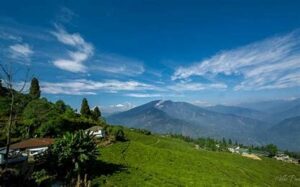The Adi tribe, one of the prominent indigenous communities of Northeast India, celebrates Solung, a vibrant festival that plays a crucial role in their cultural and agricultural life. The festival, filled with rituals, music, and dances, is a beautiful expression of their gratitude for nature’s abundance. Let’s dive deeper into this remarkable celebration and explore its historical roots, cultural significance, and contributions to the region.
Historical Roots of Solung
Solung has its roots deeply embedded in the traditions and agricultural practices of the Adi tribe. The festival has been celebrated for centuries, and its importance has remained unchanged despite the many changes the tribe has undergone. It is a way for the Adi people to connect with their ancestors, maintain their heritage, and ensure a good harvest for the coming year.
The word ‘Solung’ is believed to have originated from the word ‘Solu’ (meaning prayer) and ‘Ang’ (meaning earth). Together, they reflect the tribe’s reverence for nature and the earth’s ability to provide sustenance. It is an important agricultural festival where the Adi people thank the Earth for its blessings and seek prosperity in the coming year.
Language and Communication in the Adi Tribe
In the Adi tribe, language plays a significant role in communication, particularly during the Solung festival. The language of the Adi people is called ‘Adi’, which belongs to the Tibeto-Burman family of languages. The Adi language is used in rituals, prayers, and songs during the festival, reflecting the tribe’s cultural identity.
Communication in the Adi tribe is not just verbal; it also involves body language, gestures, and music. During Solung, elders and community leaders pass down stories, traditions, and values through oral communication. The youth listen attentively, preserving the customs and rituals for future generations. This passing down of knowledge is a crucial part of their cultural continuity.
Festivals and Celebrations: The Heart of Solung
Solung is the most important festival for the Adi tribe, symbolizing the relationship between the community and the land they depend on for their survival. The festival typically lasts for several days, beginning with a series of rituals to seek blessings for a bountiful harvest. The festival is celebrated with great zeal and enthusiasm by the entire community, from the youngest children to the oldest elders.
On the first day, the people gather to offer prayers to the gods and goddesses, thanking them for the harvest and seeking their blessings for prosperity. Special offerings, including rice, fruits, and vegetables, are made to the deities. The festival also marks the beginning of the agricultural season, with many people starting to plant new crops during this time.
The community participates in various dances, songs, and rituals throughout the festival. Traditional dance forms, accompanied by rhythmic drumming, create an atmosphere of unity and joy. The songs sung during Solung celebrate the beauty of nature, the strength of the community, and the blessings of the gods.
Arts, Crafts, and Music: Expression Through Creativity
The arts and crafts of the Adi tribe are intricately tied to the celebrations of Solung. The people of the Adi tribe are known for their skill in weaving, basket-making, and pottery, which are integral to their daily life and cultural practices. During Solung, these crafts are displayed in abundance. Women, in particular, showcase their beautifully woven textiles, and intricate baskets are used to carry offerings during rituals.
Music, too, holds great importance during Solung. The rhythm of traditional drums and the melodies of native instruments fill the air during the festival. Songs are sung in the Adi language, telling stories of their ancestors, their lands, and their beliefs. The music serves as a spiritual and emotional expression, bringing the community closer together and reinforcing their bond with the land.
Cuisine and Culinary Traditions: Feast of Abundance
Food plays a central role in the celebrations of Solung. The Adi tribe, being primarily agricultural, enjoys a variety of fresh produce from their fields during the festival. Traditional dishes made from rice, millet, and vegetables are prepared, with rice being the staple food.
A popular dish during the Solung festival is ‘Poka’, a rice cake made from fermented rice flour. This dish is usually served with meat, fish, or vegetables. The community also enjoys a variety of stews, soups, and chutneys, all made from locally sourced ingredients.
Food is not just for nourishment but also a way to express gratitude and celebrate abundance. The festival is marked by communal feasts where people come together to share their food, strengthen their relationships, and honor the earth’s generosity.
Attire and Ornamentation: Celebrating Cultural Identity
During Solung, the Adi tribe dresses in their finest traditional attire, which is both practical and symbolic. Women wear beautiful handwoven garments, including shawls, skirts, and blouses, often adorned with intricate designs. Men wear traditional attire, including a lungi (a cloth wrapped around the waist) and a woven belt.
Ornaments such as necklaces, earrings, and armlets made from beads, bone, and metal are worn by both men and women. These ornaments are not just for decoration but have cultural and spiritual significance, representing the tribe’s connection to their ancestors and the natural world.
Beliefs and Values: A Connection to Nature
The Adi tribe has a deep belief in animism, where they see spirits in nature, including trees, rivers, mountains, and animals. During Solung, the tribe performs various rituals to honor these spirits and seek their protection and blessings. The tribe believes that everything in nature is interconnected, and the balance between humans and the environment is essential for prosperity.
Respect for nature is instilled in the younger generation through stories and teachings passed down during the Solung festival. The tribe’s values, including hard work, unity, and respect for nature, are reinforced through the various rituals and community activities.
Customs and Etiquette: Harmony and Unity
Solung is a time for the community to come together, and as such, customs and etiquette are important to maintain harmony and unity. During the festival, there is an emphasis on mutual respect, cooperation, and sharing. The elders are respected and honored for their wisdom, while younger people are expected to participate in the rituals and learn the traditions.
The people of the Adi tribe take great care to maintain a spirit of inclusiveness during Solung. Everyone, regardless of age or social status, is encouraged to take part in the festivities. The festival is not just a time for individual celebration but a collective experience that reinforces the bonds of the community.
Architecture and Symbols: Connection to the Land
The traditional dwellings of the Adi people are known as ‘chang-ghar’, which are large, raised houses built from bamboo and timber. These structures are designed to withstand the challenges of the local environment and are a symbol of the tribe’s connection to the land. During Solung, the houses are decorated with symbols of prosperity, fertility, and protection.
The architectural design of the ‘chang-ghar’ is practical yet deeply symbolic, reflecting the Adi tribe’s harmonious relationship with nature. These homes are designed to be close to the ground, emphasizing the tribe’s reverence for the earth.
Oral Traditions and Storytelling: Preserving the Culture
Oral traditions are a vital part of the Adi tribe’s culture. During Solung, elders and storytellers gather around the fire to recount tales of their ancestors, the origins of the tribe, and the significance of their customs. These stories are not just for entertainment but serve as a way to educate the younger generation about their heritage and values.
Storytelling during Solung is also a way to reinforce the tribe’s connection to the land, the spirits, and the community. It is a ritual that keeps the cultural memory alive and ensures that the traditions are passed on to future generations.
Interactions with Nature: A Deep Connection
The Adi tribe’s relationship with nature is profound. They view themselves as caretakers of the land, and their agricultural practices reflect this belief. The tribe’s interactions with nature during Solung are a reminder of the importance of sustainability, respect for the environment, and the cycle of life.
During Solung, the community engages in rituals that acknowledge the land’s role in their survival. They express gratitude for the harvest, seek blessings for future prosperity, and reaffirm their commitment to protecting the environment.
Challenges and Preservation: Protecting Solung and Cultural Heritage
In recent years, the Adi tribe has faced challenges in preserving their traditions and customs due to modernization and external influences. However, the community continues to hold Solung in high regard, and efforts are being made to ensure that this festival remains an integral part of their cultural identity.
By passing down the rituals, arts, crafts, and stories, the Adi tribe is ensuring that Solung remains a vital part of their culture for future generations.
Contribution to the Broader Region and the World
The Adi tribe’s Solung festival is not just a local celebration; it has cultural and philosophical significance that resonates beyond the borders of their community. The Adi tribe’s respect for nature, their strong sense of community, and their agricultural wisdom contribute to the broader cultural and environmental awareness of the region.
The festival also brings attention to the importance of preserving indigenous cultures and traditions in an increasingly globalized world. By celebrating Solung, the Adi tribe contributes to the cultural diversity and richness of Northeast India and the world at large.
Conclusion
Solung is more than just a festival; it is a celebration of life, nature, and community. For the Adi tribe, it is a reminder of their deep connection to the earth and the importance of maintaining harmony with nature. As we continue to face challenges related to climate change and environmental degradation, the Adi tribe’s reverence for nature offers valuable lessons in sustainability and respect.
By understanding and supporting the preservation of festivals like Solung, we can help ensure that these ancient traditions continue to thrive for generations to come. Let’s take inspiration from the Adi tribe’s connection to the land and commit to protecting our environment and cultural heritage.




